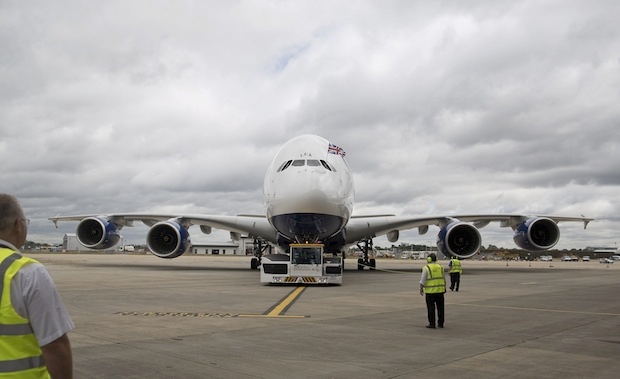On the subject of how to reach obscure parts of China and sub-Saharan Africa, Chris Baker-Brian has become something of an expert in recent years. As co-founder and chief technology officer of BBOXX, which hires solar-powered energy packs to homes and businesses on monthly payment plans, he has made 11 overseas trips during the past year. He knows the difference that a direct flight can make to a business schedule, without valuable hours being wasted in departure lounges waiting for a connecting flight.
Baker, 29, has based his business in Chiswick, West London, for its proximity to Heathrow. Yet in spite of London’s prime airport being one of the world’s biggest hub airports, at present only one of his three regular African destinations can be reached directly.
‘I can fly to Nairobi,” he says. “But when I fly to Kigali, the capital city of Rwanda, I have to change either in Brussels or Addis Ababa. There used to be a direct flight to Kampala in Uganda, but it has stopped because of the lack of slots at Heathrow.’
What is unique about BBOXX is that it leases its equipment on monthly payment plans, set according to local wages – which allows households to gain access to electricity, which they would not be able to afford if they had to purchase the equipment. As for travelling to China, where his equipment is made, he relies on a once-a-day service to Guangzhou. The limited air connections to developing countries has not prevented the explosive growth of BBOXX, which began as a spin-off from Imperial College five years ago and grown into a £4.2 million a year business supplying power to 55,000 homes and employing 200 staff. But how much better it would be if a city like Kampala, capital of a country of 37 million people, had a direct and regular connection with London. Businesses like BBOXX are becoming typical of an ever more globalised economy. It is a three-pronged operation: research and development in London, manufacturing in China and sales and marketing in East Africa. For businesses such as these, hub airports are a necessity, and closer you are to the hub, the better. Chris has plans to expand the business to 35 developing countries, bringing reliable power to communities which at present have only intermittent electricity if any power at all.
With BBOXX’s solar-generated electricity coming to remote Rwandan communities there is another British export which many people will be able to watch for the first time: Manchester United, which has a huge fan base in the country.
It is businesses like BBOXX that we need to think about in the debate over a new runway for the South East. A third runway for Heathrow is the most effective way of boosting our export industries. A third runway would add at least 40 new destinations at Heathrow, allowing greater connectivity between Britain and the rest of the world than any other solution.
It is not just a case of people like Chris needing to get about. The largely unseen cargoes, which depart from Heathrow either in dedicated freight planes or in the holds of passenger planes are just as vital to the UK economy. Heathrow is Britain’s biggest airport for freight. From pharmaceuticals being flown to developing countries, components being flown to the next Formula One race or Scottish smoked salmon being exported to China, Heathrow is by far the most common gateway for high value, time-sensitive British products being exported to foreign markets.
Heathrow is already Britain’s largest port, when measured by the value of the goods which pass through it. Already, it handles more non-EU freight by value than Southampton or Felixstowe combined. And it is only going to grow as UK industry moves more towards high-value products. Over the next 10 years Heathrow will invest £180 million in its cargo facilities. A temperature-controlled environment designed for handling pharmaceutical products will be created. The average handling time for goods passing through the airport will reduce from between eight and nine hours to four hours.
As well as the freight facility, though, Heathrow needs an extra runway to reach the increasing number of emerging market destinations for airlines which will become regular ports of call for passengers and for British-made goods as global trade increases.
The sooner that Heathrow is allowed to grow, the quicker the UK economy can grow. And the quicker that Manchester United fans in Rwanda will get to see their team.






Comments